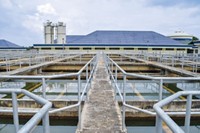Advertisement
Grab your lab coat. Let's get started
Welcome!
Welcome!
Create an account below to get 6 C&EN articles per month, receive newsletters and more - all free.
It seems this is your first time logging in online. Please enter the following information to continue.
As an ACS member you automatically get access to this site. All we need is few more details to create your reading experience.
Not you? Sign in with a different account.
Not you? Sign in with a different account.
ERROR 1
ERROR 1
ERROR 2
ERROR 2
ERROR 2
ERROR 2
ERROR 2
Password and Confirm password must match.
If you have an ACS member number, please enter it here so we can link this account to your membership. (optional)
ERROR 2
ACS values your privacy. By submitting your information, you are gaining access to C&EN and subscribing to our weekly newsletter. We use the information you provide to make your reading experience better, and we will never sell your data to third party members.
Environment
Faulty Filters
Firm indicted for making faulty air filters for chemical, biological, and nuclear agents for military tanks
by Lois R. Ember
May 25, 2006

A federal grand jury in Newark has handed down a 13-count indictment against a New Jersey defense contractor and its president and three managers on charges that they knowingly produced faulty air filters for the military's main battle tank, the M1 Abrams. The 35-lb, trash-can-sized filters are designed to protect military personnel from exposure to chemical, biological, and nuclear agents.
Each of the four defendants is charged with four counts of committing a major fraud against the U.S. Each count carries up to 10 years in prison and a $1 million fine. Also, the company and the defendants are each charged with one count of conspiracy. The maximum penalty for conspiracy is five years in prison and a fine of $250,000.
In 1996 and 1997, the Pentagon awarded Parmatic Filter Corp. contracts totaling more than $6 million to produce nearly 12,000 filters. The indictment says the deficient filters were made and shipped to the military between 1997 and 2002. After the defects were detected, the filters were removed from stock or from tanks in which they had been installed.
Each filter consists of an aluminum canister with aluminum caps on each end. The caps are coated to inhibit corrosion or oxidation. The air filtration systems consist of a high-efficiency particulate air filter and an activated carbon filter. Pittsburgh-based Calgon Carbon supplies the carbon.
Under the terms of the contracts, the filters were to be made to precise specifications, were not to be remachined, and were to be pretested for efficacy before the Pentagon accepted them. The indictment states that in remachining out-of-spec filters, the protective coating on the aluminum caps was removed. Also, equipment to test the filters had not been properly calibrated.



Join the conversation
Contact the reporter
Submit a Letter to the Editor for publication
Engage with us on Twitter